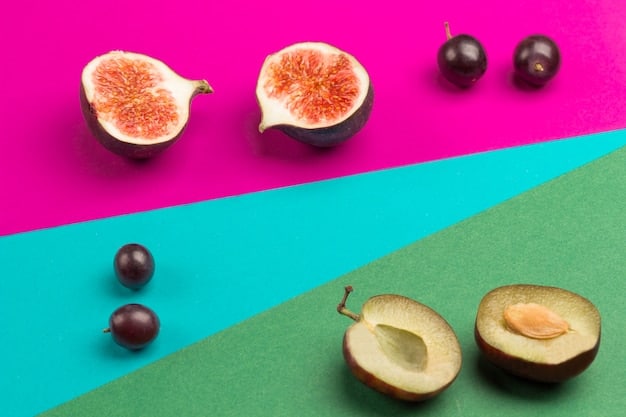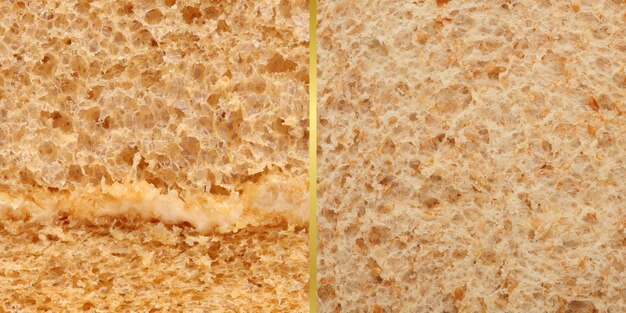Dermatologists Warn: 7 Foods Accelerating Facial Aging by 25%

Dermatologists identify seven unexpected foods that can accelerate facial aging by up to 25%: processed sugars, excessive alcohol, refined carbohydrates, salty snacks, processed meats, fried foods, and artificial sweeteners due to their impact on collagen, hydration, and inflammation levels in the skin.
Want to keep your skin looking youthful and vibrant? You might be surprised to learn that certain foods can significantly impact your facial aging. Dermatologists reveal that avoiding these 7 foods that can accelerate facial aging by 25% could be your secret weapon for a more youthful complexion.
Refined Sugars and Facial Aging
Refined sugars are a common culprit when it comes to accelerating facial aging. These sugars can lead to glycation, a process that damages collagen and elastin, the proteins that keep our skin firm and elastic. By understanding how refined sugars affect your skin, you can make informed choices to preserve a youthful look.
The Glycation Process
Glycation occurs when sugar molecules bind to proteins like collagen and elastin, forming advanced glycation end products (AGEs). These AGEs make collagen and elastin fibers stiff and less elastic, leading to wrinkles and sagging skin.
Foods High in Refined Sugars
Common sources of refined sugars include sugary drinks, candies, pastries, and processed foods. Even seemingly healthy options like certain yogurts and breakfast cereals can be packed with added sugars.
- Sugary Drinks: Sodas and sweetened juices are liquid sugar bombs that quickly elevate blood sugar levels, promoting glycation.
- Candies and Pastries: These treats are loaded with refined sugars, offering little nutritional value while contributing to skin aging.
- Processed Foods: Many processed foods contain hidden sugars, so always check the nutrition labels.
Limiting your intake of refined sugars can help reduce the glycation process, preserving the elasticity and firmness of your skin. Opt for natural sweeteners like stevia or monk fruit in moderation, and focus on whole, unprocessed foods.

The Impact of Alcohol on Skin Health
Alcohol is another factor that can significantly impact your skin’s aging process. While moderate consumption might not cause immediate harm, excessive alcohol intake can dehydrate the skin, leading to dryness, wrinkles, and a dull complexion. Understanding alcohol’s effects can help you make better choices for your skin.
Alcohol dehydrates the body, including the skin. Dehydration can make wrinkles and fine lines more prominent, giving the face an aged appearance. Additionally, alcohol dilates blood vessels, which can lead to redness and broken capillaries.
Persistent alcohol consumption can deplete the skin of essential nutrients, further contributing to aging. Nutrient deficiencies can impair the skin’s ability to repair and regenerate, leading to a loss of elasticity and increased susceptibility to damage.
Strategies for Minimizing Alcohol’s Effects
- Hydration: Drink plenty of water before, during, and after alcohol consumption to counteract dehydration.
- Moderation: Limit your alcohol intake to moderate levels, as defined by health guidelines.
- Nutrient-Rich Diet: Maintain a balanced diet rich in vitamins and antioxidants to support skin health.
By being mindful of your alcohol consumption and taking steps to mitigate its effects, you can help preserve your skin’s youthful appearance and overall health.
Refined Carbohydrates and Collagen Breakdown
Refined carbohydrates, similar to refined sugars, can accelerate facial aging through the glycation process. These carbs are quickly broken down into glucose, leading to increased blood sugar levels and subsequent damage to collagen and elastin. Making informed dietary choices can help maintain your skin’s youthful vitality.
Refined carbohydrates are found in foods like white bread, pasta, and pastries. These foods lack the fiber found in whole grains, causing a rapid spike in blood sugar levels. This spike triggers glycation, damaging essential skin proteins.
- White Bread and Pasta: These staples offer little nutritional value and contribute to rapid glucose spikes.
- Pastries and Cakes: High in both refined carbs and sugars, these treats are particularly detrimental to skin health.
- Processed Snacks: Many snack foods contain refined carbs that can sabotage your skin’s youthful appearance.
Switching from refined carbohydrates to whole grains can significantly benefit your skin. Whole grains like brown rice, quinoa, and whole wheat bread are digested more slowly, leading to a steadier release of glucose and reduced glycation.

The Role of Salty Snacks in Dehydration
Salty snacks might be tasty, but they can wreak havoc on your skin by causing dehydration. High sodium intake draws moisture out of your cells, leading to dry, dull skin and accentuated wrinkles. Awareness of the sodium content in your diet is crucial for maintaining a hydrated and youthful complexion.
Foods high in sodium, such as chips, pretzels, and processed snacks, can dehydrate the skin. When you consume too much salt, your body pulls water from your cells to maintain balance, leaving your skin dry and less elastic.
Hidden Sources of Sodium
Sodium is often hidden in unexpected places, such as canned soups, sauces, and condiments. Reading nutrition labels carefully can help you identify and reduce your sodium intake.
Strategies for Maintaining Hydration
- Drink Plenty of Water: Staying well-hydrated is essential for counteracting the dehydrating effects of sodium.
- Limit Processed Foods: Reduce your consumption of processed foods, which are typically high in sodium.
- Choose Fresh Foods: Opt for fresh fruits and vegetables, which have a high water content and are naturally low in sodium.
By cutting back on salty snacks and prioritizing hydration, you can help your skin retain its moisture and maintain a healthy, youthful glow.
Processed Meats and Inflammation
Processed meats, such as bacon, sausage, and deli meats, can contribute to facial aging by promoting inflammation in the body. These meats often contain high levels of sodium, nitrates, and other additives that can damage skin cells and accelerate the aging process. Making healthier protein choices can benefit your skin in the long run.
Processed meats are often high in sodium, saturated fats, and additives that can trigger inflammation. Chronic inflammation can break down collagen and elastin, leading to wrinkles and sagging skin.
Nitrates and nitrites, commonly found in processed meats, can also contribute to skin damage. These compounds can form harmful free radicals that attack skin cells, accelerating the aging process.
Healthier Protein Alternatives
Opting for lean protein sources like chicken, fish, beans, and lentils can provide the nutrients your skin needs without the harmful effects of processed meats. These alternatives are rich in antioxidants and essential amino acids that support collagen production and skin repair.
By reducing your intake of processed meats and focusing on healthier protein options, you can minimize inflammation and support your skin’s natural ability to stay youthful and radiant.
The Dangers of Fried Foods for Skin Elasticity
Fried foods, while tempting, can sabotage your skin’s elasticity and accelerate facial aging. The high temperatures and unhealthy oils used in frying can create harmful free radicals that damage skin cells and break down collagen. Choosing healthier cooking methods can help preserve your skin’s youthful appearance.
Fried foods are often cooked in oils that are high in trans fats, which can promote inflammation and damage skin cells. The high heat used in frying can also create advanced glycation end products (AGEs), further contributing to collagen breakdown.
- Trans Fats: These unhealthy fats can cause inflammation and impair the skin’s ability to repair itself.
- AGEs: Formed during high-heat cooking, AGEs damage collagen and elastin, leading to wrinkles and sagging skin.
Opt for cooking methods like baking, grilling, steaming, or sautéing to avoid the harmful effects of frying. These methods allow you to enjoy delicious meals without compromising your skin’s health.
By steering clear of fried foods and choosing healthier cooking options, you can protect your skin from damage and maintain a more youthful complexion. A balanced diet rich in antioxidants and essential nutrients is key to overall skin health.
Artificial Sweeteners and Skin Health
Artificial sweeteners might seem like a healthier alternative to sugar, but they can still negatively impact your skin. Some studies suggest that artificial sweeteners can disrupt gut health, leading to inflammation and skin problems. Being mindful of your sweetener choices can contribute to healthier, more youthful-looking skin.
Artificial sweeteners are often used as sugar substitutes in diet foods and drinks. However, some research indicates that these sweeteners can disrupt the balance of gut bacteria, leading to inflammation and skin issues.
Gut health plays a crucial role in overall skin health. An imbalance of gut bacteria can trigger inflammation, which can manifest as acne, eczema, and premature aging. Some artificial sweeteners may exacerbate these issues.
Natural Sweetener Alternatives
- Stevia: A natural sweetener derived from the stevia plant, stevia has minimal impact on blood sugar levels and is generally considered safe for consumption.
- Monk Fruit: Another natural sweetener, monk fruit, is low in calories and does not raise blood sugar levels.
- Honey and Maple Syrup: Use these natural sweeteners in moderation, as they still contain sugars that can impact glycation.
By being mindful of your sweetener choices and prioritizing natural options, you can support gut health and maintain a clear, youthful complexion. A balanced diet and healthy lifestyle are essential for overall skin health.
| Key Point | Brief Description |
|---|---|
| 🍬 Refined Sugars | Cause glycation, damaging collagen and elastin, leading to wrinkles. |
| 🍷 Excessive Alcohol | Dehydrates skin, making wrinkles more visible and depleting nutrients. |
| 🍟 Fried Foods | Promote free radicals and AGEs, breaking down collagen and affecting elasticity. |
| 🧂 Salty Snacks | Dehydrate the skin, causing dryness and accentuating wrinkles. |
Frequently Asked Questions
▼
Yes, reducing sugar intake can significantly improve skin appearance. Sugar promotes glycation, which damages collagen and elastin. Lowering sugar intake can slow this process, leading to firmer, more youthful skin.
▼
Alcohol dehydrates the skin and can cause inflammation. Dehydration makes wrinkles more prominent, while inflammation can break down collagen. Moderating alcohol consumption can help maintain skin hydration and reduce inflammation.
▼
Yes, there are many healthy snack alternatives. Fresh fruits, nuts, and yogurt are great options. These provide essential nutrients and antioxidants that support skin health without the harmful effects of refined sugar.
▼
Hydration is crucial for maintaining skin elasticity and preventing wrinkles. Water helps keep skin cells plump and healthy. Aim to drink at least eight glasses of water a day to support skin hydration and overall health.
▼
Avoid fried foods and opt for cooking methods like baking, grilling, or steaming. These methods reduce the formation of harmful compounds that damage skin. Also, consume antioxidant-rich foods to combat free radicals.
Conclusion
By understanding the impact of certain foods on your skin, you can make informed dietary choices to maintain a youthful and radiant complexion. Avoiding these 7 foods that accelerate facial aging—refined sugars, excessive alcohol, refined carbohydrates, salty snacks, processed meats, fried foods, and artificial sweeteners—can significantly contribute to healthier, younger-looking skin. Focus on a balanced diet rich in whole foods, hydration, and healthy cooking methods to support your skin’s natural beauty.





